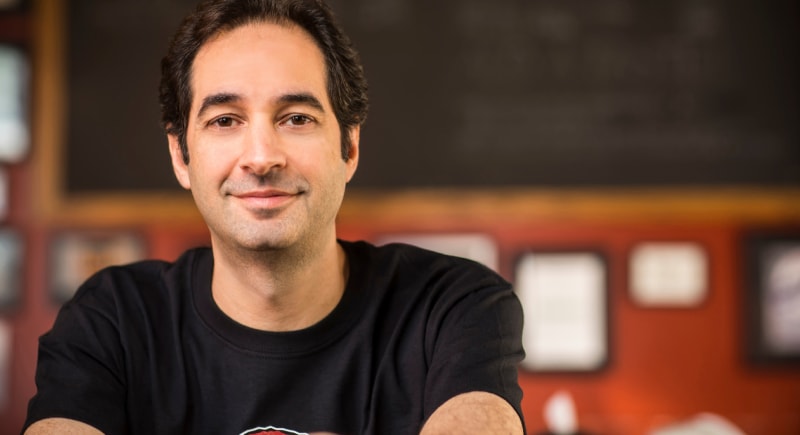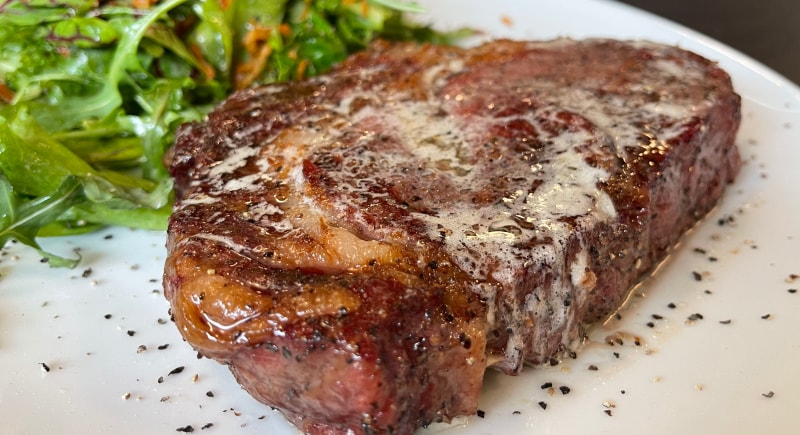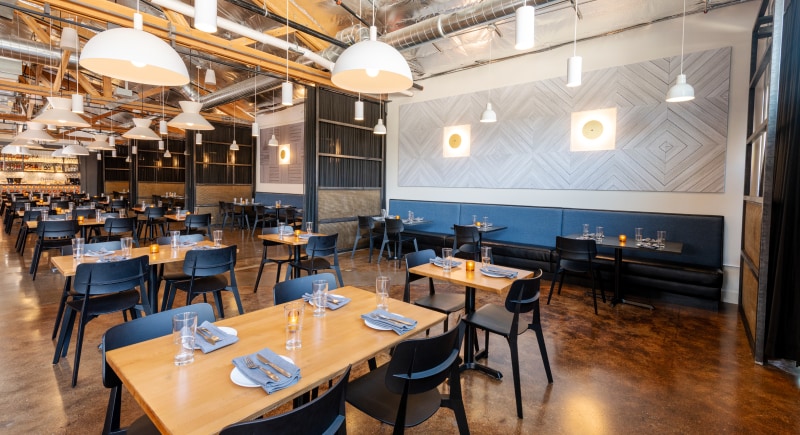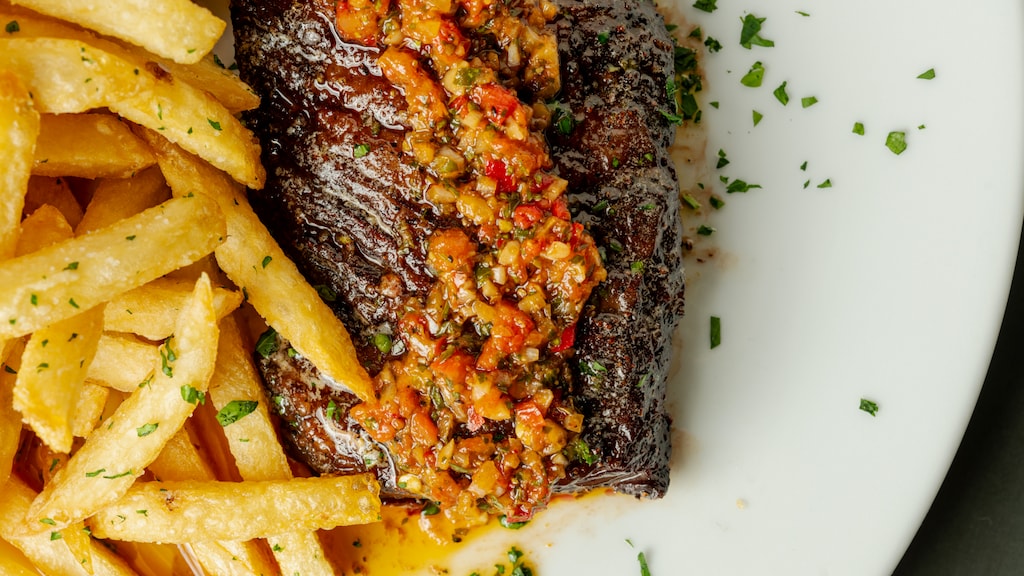Barry Sorkin seemed like an unlikely person to launch a barbecue restaurant. In 2006, at age 35, he had a degree in journalism and worked for an IT consulting company. He had virtually no restaurant experience. And for most of his life, he hated brisket.
But he had an appetite for risk, and a love of barbecue. Sorkin had been experimenting with smoking meats in his own backyard, and had eaten his way through enough destinations known for their ‘cue – Memphis, Kansas City, Austin, and the Carolinas – to notice there was a void in Chicago when it came to tender, slow-smoked meats. So he took the plunge. He quit a job he didn’t love and opened his first restaurant, Smoque. “You can make yourself nuts trying to second-guess the market,” he says. “All you can really do is cook to your own taste, and just hope that you’re not alone.”
Very quickly, he learned he was not alone.
Identifying an Opportunity
Growing up in the Chicago suburbs, Sorkin knew that his mother, while an amazing mom, was a terrible cook. He dreaded the holidays when she’d make brisket. “It was this very tough, chewy thing you almost had to choke down,” he says. In his mid-20s, a friend from Texas enlightened him about another style of brisket. Not long after, Sorkin started smoking that cut of beef in his backyard and was an instant fan.

This was the early 2000s, and Sorkin recalls that the barbecue scene in Chicago was small. He describes two distinct styles that were available: on the north side of town, restaurants baked or steamed ribs before slathering them with sauce and throwing them on the grill; and on the city’s south side, barbecue joints cooked spare ribs in aquarium-style smokers over charcoal or natural hardwood. “I just felt like there was more to barbecue than what we had here,” he says.
In his mid-30s, Sorkin had been working at an IT consulting company in roles that ranged from copywriting to account management. “It wasn’t what I wanted to be doing,” he says. He and his co-worker friends would amuse themselves by imagining the jobs they could have. Often, it was in jest. Until one day, it wasn’t. Sorkin shared his dream of opening a barbecue restaurant. Two co-workers – Chris Hendrickson and Mike McDermott – wanted to be a part of it. Sorkin’s uncle, Al Sherman, did, too, and they all became partners.
They put together a detailed business plan laying out their vision and highlighting what would differentiate their restaurant in the Chicago market, and presented it to three banks. To their surprise, each bank offered to sign off on an SBA loan. “Whether or not they found the plan itself compelling, I think what they saw was this is someone who could maybe pull this off,” says Sorkin.
“You can make yourself nuts trying to second-guess the market,” he says. “All you can really do is cook to your own taste, and just hope that you’re not alone.” —Barry Sorkin, co-founder, Smoque
Not everyone was so supportive of the risky venture. “That’s the funny thing about a restaurant,” he says. “You cook for somebody and they say ‘Wow, you should open up a restaurant.’ And when you tell them you’re going to, they go, ‘Oh, that’s really dumb.’” To respond to all of the “whys” he was getting, Sorkin wrote what he now calls his “barbecue manifesto” – a screed about what barbecue ought to be, and why he’s doing it – and posted it online. That led to an enthusiastic debate by members of a popular local food site, LTH Forum, and Sorkin’s phone started ringing with reporters calling. “We had not served a meal yet, and there was already this buzz about the restaurant, “ says Sorkin. “I'd never been so terrified in my life.”

Smoque’s opening day was packed with customers. Sorkin quickly realized his team of 12 employees wasn’t enough to handle the crowds, but in the weeks that followed he was so busy smoking and slicing brisket he couldn’t step away to help. Initially, he called restaurant staffing companies for help, requesting prep cooks, dishwashers, anyone. Before long, Hendrickson and McDermott left their jobs to help operate the restaurant, hiring more than 30 additional employees.
In that first year, Smoque was featured on local news programs and then national ones; it’s since been ranked among the nation’s best barbecue spots and earned several Michelin Bib Gourmand awards. Sorkin admits that those first few years he was waiting for something bad to happen. “It felt like it was unsustainable, that level of enthusiasm and popularity,” he says. “But our sales have never gone down. I’m so grateful for that.”
Growing With Intention
With the success of Smoque, Sorkin and his partners toyed with the idea of opening another restaurant, but didn’t want to do it just for the sake of it. Then, around 2018, inspiration struck by accident. While opening a box of meat, Sorkin found strip loin had been sent in place of brisket. On a whim, he decided to cut it into steaks, smoke them and finish each off with a sear in a cast-iron skillet. It was a revelation. “I thought, ‘This is the best thing I’ve ever eaten,” he says. His partners said the same.
They started making plans for a casual, neighborhood steakhouse, called Smoque Steak, that would be a departure from the opulence and extravagance of modern steakhouses. “Eating a steak is such a primal culinary experience. I mean, it’s a slab of meat,” says Sorkin. “The ceremony that evolved around it always seemed a little over-the-top to me. We wanted to build something that was a little more down to earth.”

They brought on an additional partner, Dylan Lipe, who has experience in fine dining and hotels. Together, they devised a cooking method that includes a sous vide process and would allow them to smoke a high volume of steaks – which are far more sensitive to temperature variations than brisket – in a precise manner. To fund the venture, Sorkin and his partners invited friends, family, and loyal customers to invest. “We really wanted to involve the people that helped get us to where we are,” he says.
In 2020, the team had raised about half of the funds needed. Then the pandemic hit. As talk of a vaccine circulated, Sorkin returned to the search for investors. Rather than inviting them into the restaurant to sample food, he sent smoked, vacuum-sealed steaks to them, along with cooking tools needed to heat and serve the meat. Via video chat, Sorkin talked them through the preparation. The method worked. “We actually raised the second half of the capital faster than we raised the first half,” he says. Altogether, more than 30 individuals helped fund Smoque Steak, which opened in Chicago May 2023 to rave reviews.
Nearly 17 years after the opening of Smoque, Sorkin says he still doesn’t fully understand the secret to its success. But he hopes that that magic transpires at the newest endeavor, too. It’s certainly grounded in the same principle of serving food that he loves, and believing that others will love it, too. “We’ll keep doing what we’ve been doing and hope that people don’t change their minds,” he says.
Photos: Chris Peters / Courtesy of Smoque Steak, Todd Rosenberg / Courtesy of Smoque Steak




